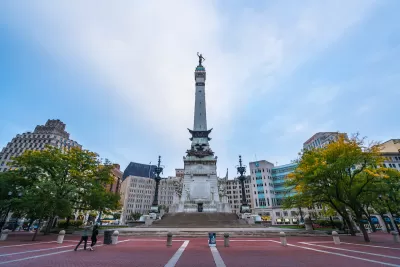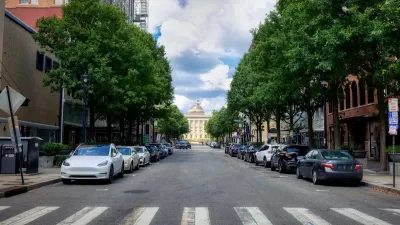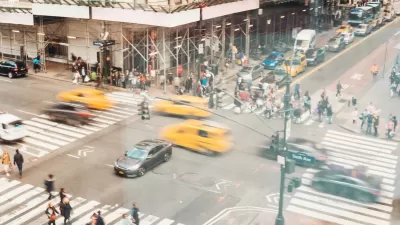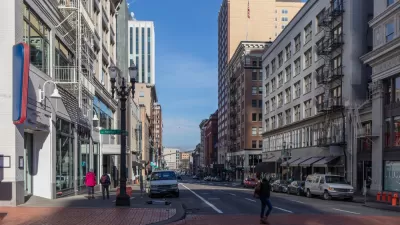As of now, the city lacks a dedicated funding source for pedestrian safety efforts.

Indianapolis could join other cities in developing a Vision Zero plan as part of an effort to stem rising pedestrian deaths, reports Nadia Scharf in the Indianapolis Star.
According to Scharf, “A Vision Zero plan has been on the table for nearly a decade. Now, several city-county council members plan to present a proposal in July and the city has sent out a request for proposals for a study that would examine how a Vision Zero plan could operate in Indy.”
The strategy requires collaboration between various city departments and nonprofits and will likely include infrastructure improvements such as bike lanes, curb extensions, and crosswalks. The proposed Vision Zero bill “will set a timeline goal to see results, create and define an oversight committee to keep efforts on track towards that goal, and set requirements for the first draft of an action plan.”
According to Scharf, Indianapolis faces a disadvantage when it comes to transportation funding: because the state allocates funding based on road miles rather than lanes or vehicle throughput, there is no dedicated funding source for Vision Zero to date. “It’s unclear what changes led by a Vision Zero plan might look like in Indianapolis, but advocates and policymakers alike agree: something needs to change to make Indy streets safer.”
FULL STORY: Indy is in a 'pedestrian safety crisis.' Can a Vision Zero traffic safety plan save lives?

Planetizen Federal Action Tracker
A weekly monitor of how Trump’s orders and actions are impacting planners and planning in America.

Congressman Proposes Bill to Rename DC Metro “Trump Train”
The Make Autorail Great Again Act would withhold federal funding to the system until the Washington Metropolitan Area Transit Authority (WMATA), rebrands as the Washington Metropolitan Authority for Greater Access (WMAGA).

The Simple Legislative Tool Transforming Vacant Downtowns
In California, Michigan and Georgia, an easy win is bringing dollars — and delight — back to city centers.

The States Losing Rural Delivery Rooms at an Alarming Pace
In some states, as few as 9% of rural hospitals still deliver babies. As a result, rising pre-term births, no adequate pre-term care and harrowing close calls are a growing reality.

The Small South Asian Republic Going all in on EVs
Thanks to one simple policy change less than five years ago, 65% of new cars in this Himalayan country are now electric.

DC Backpedals on Bike Lane Protection, Swaps Barriers for Paint
Citing aesthetic concerns, the city is removing the concrete barriers and flexposts that once separated Arizona Avenue cyclists from motor vehicles.
Urban Design for Planners 1: Software Tools
This six-course series explores essential urban design concepts using open source software and equips planners with the tools they need to participate fully in the urban design process.
Planning for Universal Design
Learn the tools for implementing Universal Design in planning regulations.
Smith Gee Studio
City of Charlotte
City of Camden Redevelopment Agency
City of Astoria
Transportation Research & Education Center (TREC) at Portland State University
US High Speed Rail Association
City of Camden Redevelopment Agency
Municipality of Princeton (NJ)





























